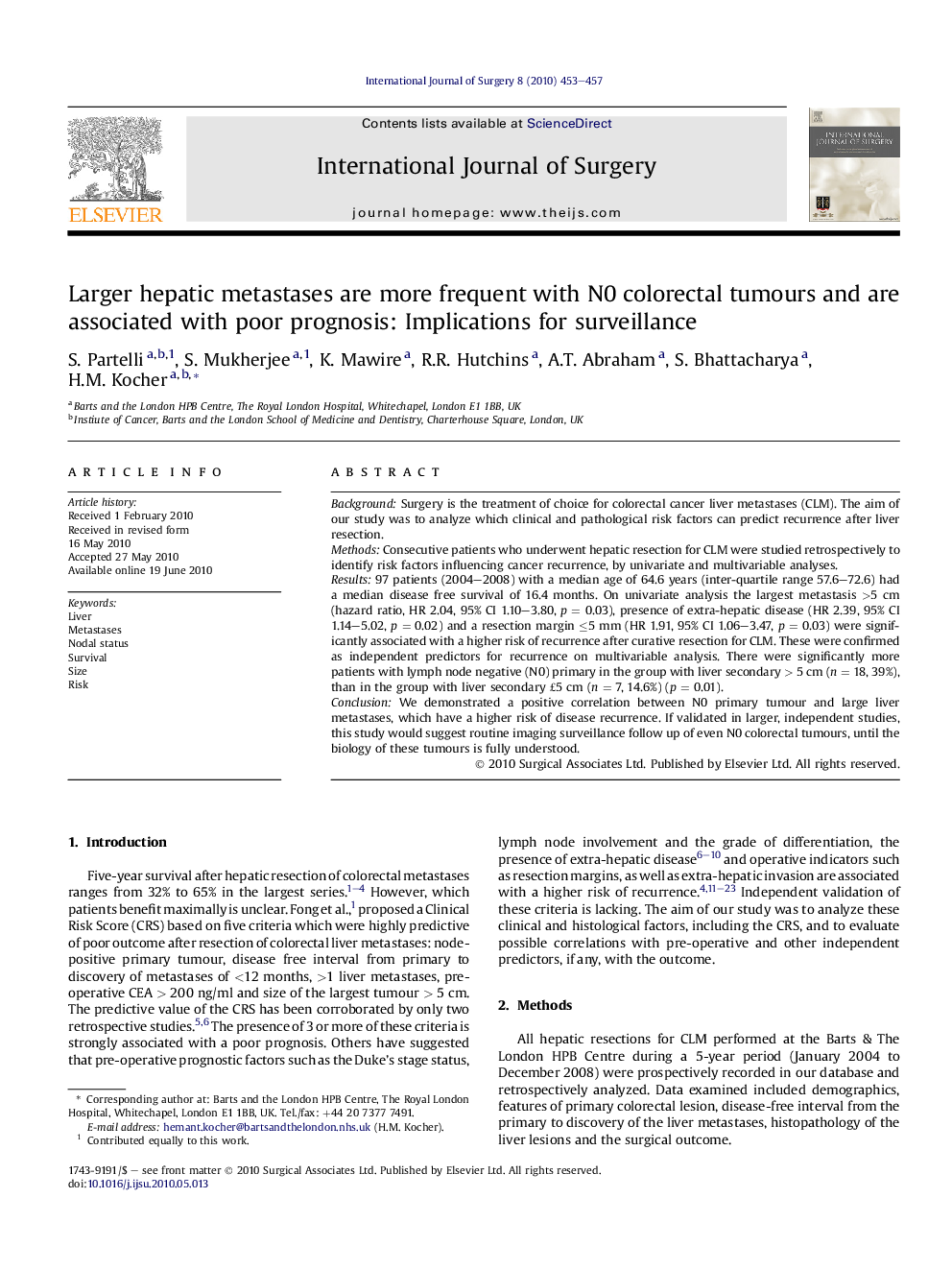| Article ID | Journal | Published Year | Pages | File Type |
|---|---|---|---|---|
| 4287207 | International Journal of Surgery | 2010 | 5 Pages |
BackgroundSurgery is the treatment of choice for colorectal cancer liver metastases (CLM). The aim of our study was to analyze which clinical and pathological risk factors can predict recurrence after liver resection.MethodsConsecutive patients who underwent hepatic resection for CLM were studied retrospectively to identify risk factors influencing cancer recurrence, by univariate and multivariable analyses.Results97 patients (2004–2008) with a median age of 64.6 years (inter-quartile range 57.6–72.6) had a median disease free survival of 16.4 months. On univariate analysis the largest metastasis >5 cm (hazard ratio, HR 2.04, 95% CI 1.10–3.80, p = 0.03), presence of extra-hepatic disease (HR 2.39, 95% CI 1.14–5.02, p = 0.02) and a resection margin ≤5 mm (HR 1.91, 95% CI 1.06–3.47, p = 0.03) were significantly associated with a higher risk of recurrence after curative resection for CLM. These were confirmed as independent predictors for recurrence on multivariable analysis. There were significantly more patients with lymph node negative (N0) primary in the group with liver secondary > 5 cm (n = 18, 39%), than in the group with liver secondary £5 cm (n = 7, 14.6%) (p = 0.01).ConclusionWe demonstrated a positive correlation between N0 primary tumour and large liver metastases, which have a higher risk of disease recurrence. If validated in larger, independent studies, this study would suggest routine imaging surveillance follow up of even N0 colorectal tumours, until the biology of these tumours is fully understood.
